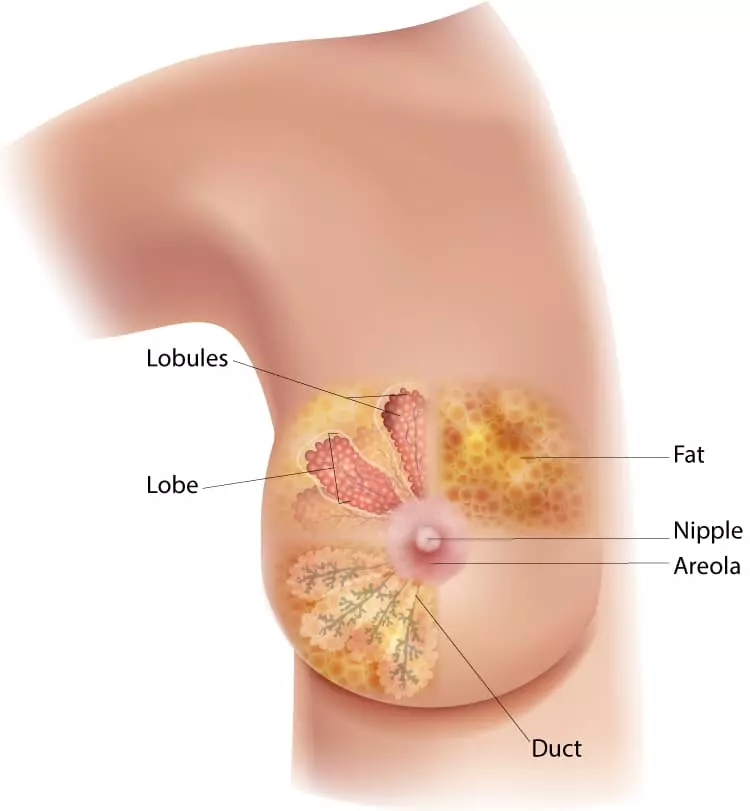How To Prevent Breast Cancer
Table of Contents

Cancer of the breast Many women are concerned just by reading those words. That’s understandable.
Almost everyone knows someone who has been affected by the disease.
There is, however, a lot of good news about breast cancer these days. Treatments are improving, and we now know more than ever about how to prevent the disease. These eight simple steps can help reduce your risk of developing breast cancer. Not all of them apply to every woman, but when combined, they can have a significant impact.
Keep Weight in Check
It’s easy to tune out because it’s said so often, but maintaining a healthy weight is a goal that everyone should strive for. Being overweight raises the risk of many cancers, including breast cancer, particularly after menopause.
Be Physically Active
Exercise is as close to a cure-all for good health as you can get, and women who exercise for at least 30 minutes a day have a lower risk of breast cancer. Regular exercise is also one of the most effective ways to maintain a healthy weight.
Eat Your Fruits & Vegetables – and Limit Alcohol (Zero is Best)
A healthy diet can help reduce the risk of developing breast cancer. Limit alcohol and eat a lot of fruits and vegetables. While moderate drinking may be beneficial to the heart in older adults, even light drinking may increase the risk of breast cancer. With all of the risks associated with alcohol, not drinking is the healthiest option.
Don’t Smoke
Smoking causes at least 15 different cancers, including breast cancer, in addition to many other health risks. If you smoke, make an effort to quit as soon as possible. It is almost never too late to apply for benefits.
Breastfeed, If Possible
Breastfeeding for one year or more (for all children) reduces the risk of breast cancer. It is also extremely beneficial to the child’s health. Contact your pediatrician, hospital, or local health department for breastfeeding information and support.
Avoid Birth Control Pills, Particularly After Age 35 or If You Smoke
Birth control pills have both advantages and disadvantages. The younger the woman, the lower the risks. Women who use birth control pills have a slightly increased risk of breast cancer. However, once the pill is stopped, this risk disappears quickly. While on the pill, a woman’s risk of stroke and heart attack increases, especially if she smokes. Long-term use, on the other hand, can have significant benefits, such as lowering the risk of ovarian cancer, colon cancer, and uterine cancer, not to mention unwanted pregnancy, so it has a lot going for it. If you’re concerned about breast cancer, one way to reduce your risk is to avoid using birth control pills.
Avoid Menopausal Hormone Therapy
Long-term menopausal hormone therapy should not be used to prevent chronic diseases. According to studies, it has a mixed effect on health, increasing the risk of some diseases while decreasing the risk of others. Furthermore, both estrogen-only and estrogen-plus-progestin hormones increase the risk of breast cancer. Women should use menopausal hormone therapy for the shortest amount of time possible. Your doctor is the best person to talk to about the risks and benefits of menopausal hormone therapy.
Tamoxifen and Raloxifene for Women at High Risk
Although it is not commonly regarded as a “healthy behavior,” taking the prescription drugs tamoxifen and raloxifene can significantly reduce the risk of breast cancer.
Breast cancer in women at high risk of developing the disease
The FDA has approved it for breast cancer prevention.
These potent drugs may cause side effects, so
They are not suitable for everyone. If you believe you are
If you are at high risk, consult your doctor to see if tamoxifen or raloxifene is right for you.
Find Out Your Family History
Women with a strong family history of cancer can take extra precautions to protect themselves, so it’s critical for women to be aware of their family history. If you have a mother or sister who developed breast or ovarian cancer (especially at a young age), or if you have multiple family members (including males) who developed breast, ovarian, or prostate cancer, you may be at high risk of developing breast cancer. A doctor or genetic counselor can help you understand your disease’s family history.
Don’t Forget Mammograms
Mammogram screening for breast cancer saves lives. It does not prevent cancer, but it can help detect it early, when it is more treatable.
Beginning at the age of 40, most women should have yearly mammograms.
Women who are at a higher risk of developing breast cancer may need to begin mammograms earlier. So, by the age of 30, you should consult a doctor about any breast cancer risk factors you may have and whether you would benefit from earlier screening.
Breast self-examinations on a regular basis are not recommended for screening. They have not been found to be beneficial. However, you should be familiar with your breasts and notify a healthcare provider immediately if you notice any changes in the appearance or feel of your breasts.